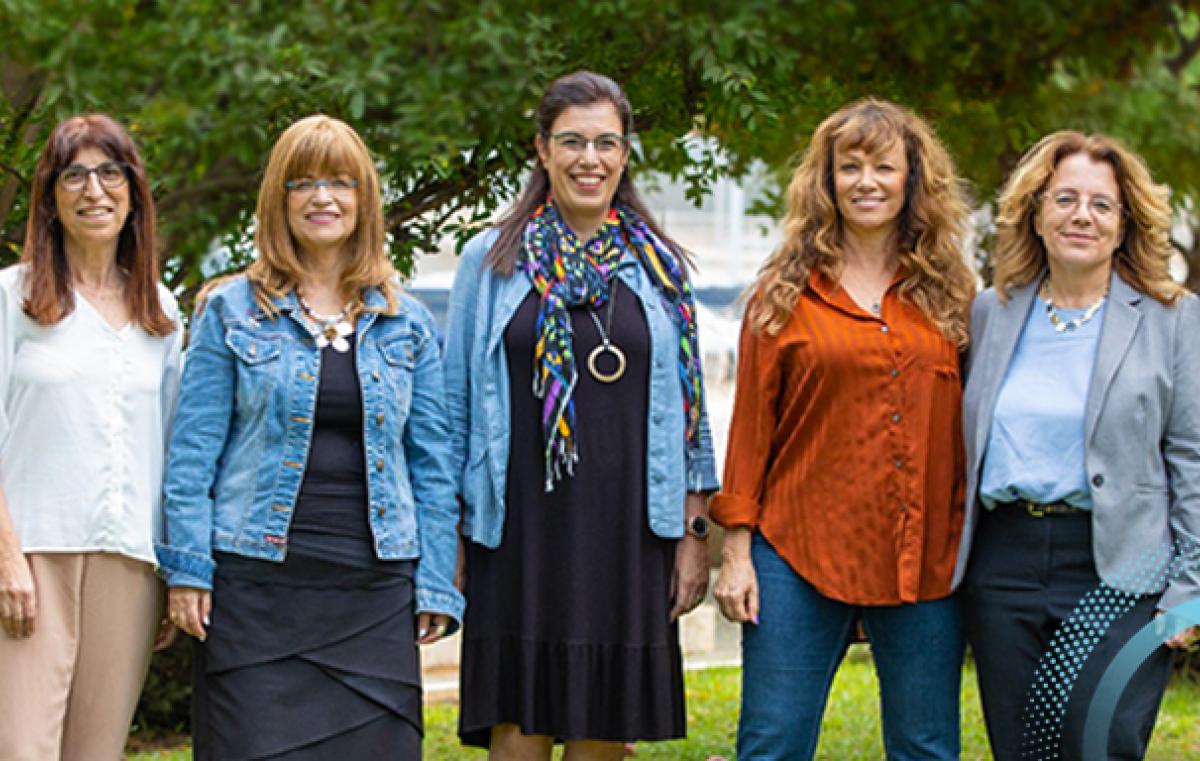Five of Eleven BIU Deans are Women
Additionally, nearly 50% of all faculty deans are female

This week, as Israeli higher education ushers in a new academic year, Bar-Ilan University is celebrating a particular milestone: nearly half of its 11 deans are female, a first in the University's history! The appointment of three women to head the faculties of law, education and humanities, brings the number of current female deans to five.
Another first: 50% of the elected members of the University Senate -- the highest-ranking academic governing body, which includes 70 members -- are female faculty.
The new female deans are Prof. Michal Alberstein, Faculty of Law; Prof. Zehavit Gross, Faculty of Education; and Prof. Daniela Dueck, Faculty of Humanities. They join two incumbent female deans: Prof. Ronit Sarid, Dean of the School of Graduate Studies and Prof. Nira Mishal, Dean of Students.
Prof. Michal Alberstein is the incoming Dean of the Faculty of Law. She specializes in conflict resolution, legal formalism, jurisprudence, trauma and memory, and identity-based conflict resolution. She is the primary investigator on an ERC Consolidator Grant to study Judicial Conflict Resolution (JCR), and on an ERC Proof of Concept Grant to facilitate conflict resolution through AI machine learning. Prof. Alberstein has written dozens of articles and three books, and teaches and advises research students in Israel and around the world. She is the recipient of the Fattal Prize for distinguished legal scholars and the Bar-Ilan Rector's Prize for outstanding academic achievement.
"Joining the current female deans strengthens the refreshing wave of innovative leadership at Bar-Ilan," says Prof. Alberstein. Of her new position she says, "My ambition is to establish a center for social justice at the Faculty that combines clinical activity with in-depth research that contributes to optimal relationships through dialogue and the ability to cope with complexities."
Prof. Zehavit Gross is the new Dean of the Faculty of Education. A full professor, she heads the training program for management and development of informal education systems, the UNESCO Chair in Education for Values, Tolerance and Peace, and the Sal Van Gelder Center for Holocaust Research and Instruction in the Faculty of Education. She specializes in religious and inter-religious education research, education for peace and tolerance, and Holocaust instruction in informal education in Israel and around the world. Her research focuses on socialization processes (religious, national, gender and ethnic) of adolescents. She is a partner in four international research projects in Europe, the United States, Australia, and Hong Kong, Singapore, New Zealand and China. Prof. Gross' articles have been published in leading journals, and she has written and edited many books and lectured at prestigious universities around the world.
"The fact that there are so many female deans expresses the spirit of the times – everything is open and everything is possible and the main thing is that we work hard and succeed," said Prof. Gross.
Prof. Daniela Dueck, a senior faculty member in the Department of Classical Studies and the Department of General History, is the incoming Dean of the Faculty of Humanities. She studies and teaches ancient Greek and Roman history and culture, specializing in ancient geography, its documentation and its traditions. Prof. Dueck's latest book, published by Routledge, explores the circulation of geographical knowledge among illiterate populations and offers a new methodology for the assessment and transmission of geography through oral and visual means.
"I believe that one of our primary tasks as a university is to nurture a generation of pioneers in all branches of science and technology who will be multifaceted and broad-minded individuals with high analytical abilities, while, at the same time, cultivating future research specialists in the eternal disciplines that make up the Humanities. This combination, in my view, is the key to a better society, better science, better and more successful startups and better human beings," said Prof. Dueck.
"In recent years, Bar-Ilan has been encouraging the appointment of women to managerial positions in academia," said University Rector Prof. Amnon Albeck, who heads the Senate academic governing body that appoints deans and other senior leadership. "The wonderful deans we have chosen and the impressive percentage of women in the Senate are the result of a continual increase in the number of female senior faculty members. I hope that these appointments will encourage more women to join academia to conduct research and make an impact together with us."